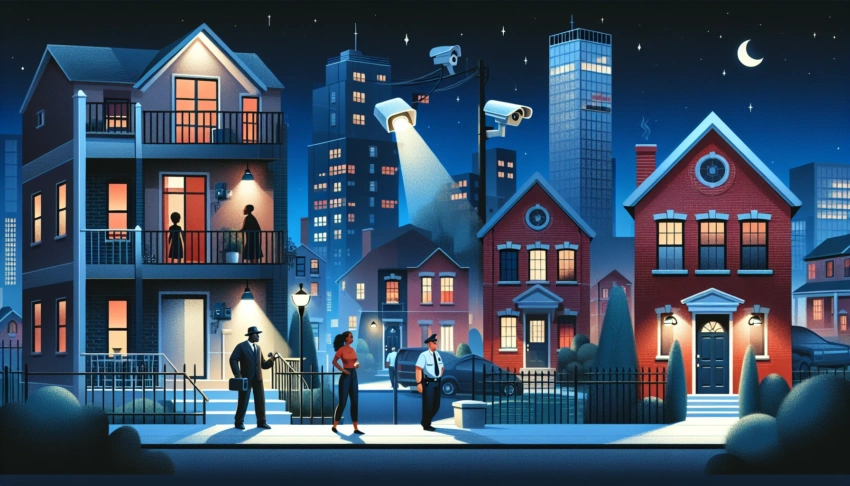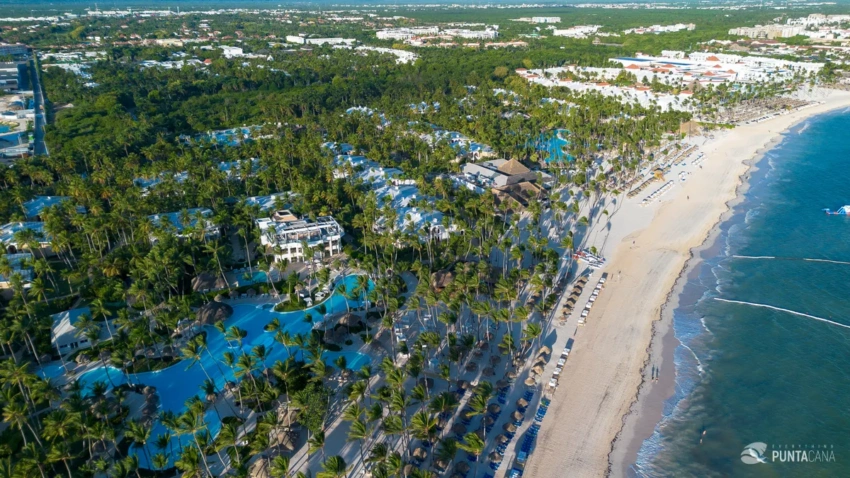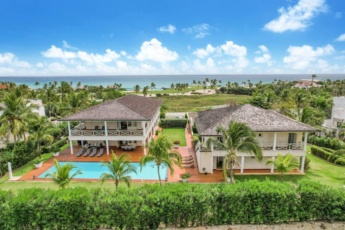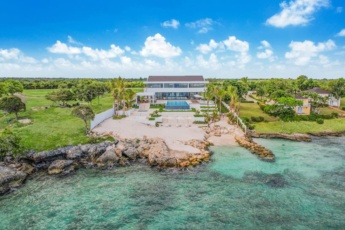Nighttime Security: Feeling Safe Around the Clock at Your Rental
Understanding Nighttime Security for Rentals

Nighttime Security: Feeling Safe Around the Clock at Your Rental
In today’s ever-changing world, ensuring the safety and security of rental properties, particularly during nighttime, is of paramount importance. A well-secured environment not only protects the property but also significantly enhances the peace of mind of its residents. Understanding the nuances of nighttime security is crucial for both property owners and tenants.
1. The Importance of Nighttime Security
Nighttime security forms the backbone of a safe living environment within rental properties. As the sun sets, rental properties become more vulnerable to security threats, making robust security measures indispensable. Ensuring security after dark does not merely protect physical assets; it cultivates a sense of safety and trust among tenants.
The perception of safety influences tenant satisfaction immensely. A property with a solid reputation for security tends to attract and retain tenants more effectively than one without. This, in turn, leads to reduced vacancy rates and increased tenant loyalty.
2. Common Security Concerns at Night
Several security concerns manifest predominantly during nighttime, posing significant challenges for renters. Understanding these issues is key to addressing them effectively:
- Break-ins: The cover of darkness often emboldens criminals. Break-ins are a common threat that can lead to property damage and loss of personal belongings.
- Vandalism: Vandals tend to operate at night, when the risk of being caught is lower, leading to defacement or destruction of property.
- Loitering: Unwanted individuals loitering around the property can create discomfort among residents and sometimes lead to more serious security issues.
- Theft of Property: Items such as bicycles, outdoor furniture, and other valuables are at risk of being stolen when left unsecured overnight.
Addressing these concerns requires a multi-faceted approach, combining technology, tenant awareness, and proactive management strategies.
3. How Nighttime Security Impacts Property Value
The level of security associated with a rental property directly influences its market value and appeal. Effective nighttime security measures can significantly enhance the property’s desirability, leading to higher rental rates and property valuations.
Impact of Security Features on Property Value
| Security Feature | Impact on Value | Tenant Appeal |
|---|---|---|
| 24/7 Surveillance Cameras | High | Increases sense of safety |
| Well-Lit Exteriors | Moderate | Enhances visibility and deters crime |
| Secure Entry Systems | High | Offers convenience and security |
| Community Watch Programs | Moderate | Fosters community involvement |
Investing in nighttime security is not merely about preventing crime; it’s an investment in the property’s future. Properties that prioritize security measures are often perceived as more upscale, attracting tenants who are willing to pay a premium for peace of mind.
Implementing Effective Security Measures
In today’s fast-paced world, ensuring the security of rental properties is more crucial than ever. Implementing effective security measures not only safeguards the property but also enhances tenant satisfaction and peace of mind.
1. Choosing the Right Security Systems
When it comes to selecting the right security systems for rental properties, landlords and property managers have a plethora of options. The key is to choose systems that provide comprehensive security without being intrusive.
Security systems have evolved beyond simple locks and alarms. Modern security solutions often include integrated systems with a range of features such as surveillance cameras, motion sensors, and alarms. Cameras, particularly, play a significant role in deterring crime, as the presence of a camera alone can discourage potential burglars. Additionally, smart cameras with night vision capabilities ensure that surveillance is effective even in low-light conditions.
Comparison of Security Systems for Rentals
| Security System | Features | Benefits | Drawbacks |
|---|---|---|---|
| Surveillance Cameras | Night Vision, Motion Detection | Crime Deterrence, Evidence Collection | Privacy Concerns |
| Alarm Systems | Intrusion Alerts, Loud Sirens | Immediate Alert, Deters Intruders | False Alarms |
| Smart Locks | Keyless Entry, Remote Access | Convenience, Enhanced Access Control | Technical Glitches |
For rental properties, it’s essential to balance security needs with tenant privacy. Ensuring that cameras are placed in public areas and not infringing on private spaces is crucial. Moreover, landlords should consider systems that integrate with mobile apps, allowing for remote monitoring and management by both landlords and tenants.
2. Lighting Solutions for Enhanced Safety
Lighting is often an underestimated element of security, yet it plays a vital role in deterring crime and enhancing safety. Well-lit areas are less attractive to potential criminals, as visibility reduces the opportunity for illicit activities.
Strategically placed lighting around entry points, walkways, and parking lots can significantly enhance security. Motion-activated lights are particularly effective, as they not only illuminate dark areas but also surprise and deter intruders. These lights are energy-efficient and can be programmed to activate only when needed, making them a cost-effective solution for property owners.
By implementing effective lighting solutions, rental property owners can create a safe and welcoming environment that reassures tenants and enhances the property’s appeal.
3. Access Control and Entry Systems
The advent of smart access control systems has revolutionized property security management. Traditional keys are gradually being replaced by more sophisticated entry systems that offer enhanced security and convenience.
Access control systems such as smart locks and keypads eliminate the need for physical keys, reducing the risk of lost or stolen keys. These systems allow for keyless entry, providing tenants with ease of access while giving property managers the ability to control and monitor entry remotely. Additionally, some systems offer temporary access codes for guests or service providers, enhancing flexibility without compromising security.
For landlords, choosing the right access control system involves considering factors such as ease of use, reliability, and integration with other security systems. It’s also important to ensure that these systems are user-friendly for tenants, avoiding unnecessary complexity that could lead to frustration.
By investing in modern access control solutions, landlords can significantly enhance the security of their rental properties while offering tenants the convenience and peace of mind they desire.
Engaging with Tenants on Security Matters
A secure rental environment is not just the responsibility of the property owner; it is a collaborative effort between landlords and tenants. By fostering an open dialogue and actively engaging tenants in security matters, landlords can significantly enhance the safety and peace of mind for all residents.
1. Educating Tenants on Security Practices
One of the most effective ways to ensure security is through tenant education. Landlords should take the initiative to inform tenants about best practices for maintaining a safe environment. This includes advising them on securing their personal belongings, recognizing suspicious activities, and knowing whom to contact in case of an emergency.
Providing tenants with a comprehensive security handbook during the move-in process can be an excellent starting point. This handbook may cover essential topics such as the importance of locking doors and windows, the use of security lighting, and protocols for reporting incidents. Regular newsletters or emails can also keep security practices top of mind.
2. Encouraging Community Watch Programs
Establishing a community watch program can foster a sense of collective responsibility and vigilance among tenants. Such programs encourage residents to be more aware of their surroundings and to look out for each other. Landlords can facilitate these initiatives by organizing meetings and providing resources or contact information for local law enforcement agencies.
Community watch programs are not only effective in enhancing security but also in building a community spirit. When tenants feel they are part of a supportive network, they are more likely to report unusual activities and contribute to a safer environment. These programs can also include regular workshops or seminars with security experts, offering valuable insights into crime prevention strategies.
3. Handling Security Breaches and Incidents
Even with the best precautions, security breaches can occur. It is crucial for both landlords and tenants to have a clear action plan in place for such situations. Landlords should outline the steps tenants need to follow if they suspect a security breach, including contacting the authorities and informing the property management immediately.
An effective response plan helps minimize panic and ensures that breaches are addressed swiftly. Landlords should also maintain a record of all security incidents and follow up with tenants to discuss any additional measures needed to prevent future occurrences. Regular reviews of security protocols can help adapt to any new threats or vulnerabilities.
Our Safe and Secure Rentals in Punta Cana
Ensuring tenant safety is paramount, and our properties in Punta Cana are equipped with state-of-the-art security measures to provide peace of mind. From gated communities with 24/7 security personnel to modern access control systems, we prioritize the safety of our residents. Explore our available rentals to find a secure home that meets your needs.

Brand-New Oceanfront Luxury Cap Cana 10BR Villa - Private Beach, Full Staff, Home Theater
from $8648 night Read more
New Bávaro Beach Beachfront Condo for Rent - Stunning Ocean View, Housekeeper & Rooftop Terrace
from $811 night Read moreInnovative Security Technologies for Rentals
In today’s rapidly evolving technological landscape, rental property security has taken a giant leap forward. Embracing cutting-edge technologies not only enhances safety but also adds a layer of convenience for both landlords and tenants.

Punta Cana, drone view
1. Smart Home Security Devices
The integration of smart home security devices in rental properties has revolutionized the way we approach safety. These devices, ranging from doorbell cameras to advanced motion detectors, offer real-time monitoring and control, allowing both tenants and landlords to feel secure.
Doorbell cameras, like the popular Ring or Nest Hello, provide immediate alerts and video footage of visitors, deterring potential intruders. These devices can be accessed remotely, offering peace of mind even when tenants are away from home. Additionally, smart locks have become a staple in modern rentals, providing keyless entry options and allowing landlords to manage access remotely, which is especially useful for short-term rentals.
Our Best Ocean View Villa Rentals in Punta Cana
Experience luxury and security with our exclusive villa rentals, equipped with state-of-the-art smart home security features. Book now to enjoy a seamless blend of comfort and safety.

Private Cap Cana Caleton Villa with Large Pool, Ocean View, and Top Amenities
from $2246 night Read more
New & Luxury Casa de Campo Oceanfront Villa - With Private Beach, Large Pool, Top Amenities
from $14820 night Read more2. Integration of AI and Machine Learning
Artificial intelligence and machine learning are reshaping security monitoring in rental properties. These technologies enable smart systems to learn and adapt to the environment, improving threat detection and response times. AI-powered security cameras can distinguish between humans and pets, reducing false alarms and enhancing accuracy.
Machine learning algorithms analyze data patterns to predict and prevent potential security breaches. For instance, anomaly detection helps identify unusual activities, such as unauthorized access attempts, and alerts property managers in real time. This proactive approach not only enhances security but also optimizes resource allocation, ensuring that the most critical areas receive attention.
3. The Role of Mobile Apps in Security Management
Mobile applications have become indispensable tools for managing security systems in rental properties. These apps provide landlords and tenants with the ability to monitor and control security devices remotely, ensuring constant vigilance regardless of location.
With apps like SimpliSafe or ADT Control, users can arm or disarm systems, view live camera feeds, and receive instant notifications of security breaches. These apps often include features for integrating with other smart devices, creating a cohesive and automated security ecosystem. This level of accessibility and control empowers users to respond quickly to incidents, minimizing potential risks and enhancing overall property security.
Innovative security technologies are transforming rental property management, providing enhanced safety and convenience for all. As these technologies continue to evolve, they offer promising solutions for creating secure and welcoming environments.
Balancing Privacy and Security
In a world where security concerns are increasingly paramount, rental property owners must navigate the delicate balance between ensuring robust security and respecting tenant privacy. This dual focus not only enhances the tenant experience but also fosters trust and satisfaction.

Aerial view of Punta Cana
1. Understanding Tenant Privacy Rights
Navigating the intricacies of tenant privacy rights is essential for property owners and managers. Tenants are entitled to a reasonable expectation of privacy in their homes, which is protected by various state and federal laws. Property owners must be well-versed in these legal frameworks to ensure that any security measures do not infringe on these rights.
One key aspect of tenant privacy is the regulation of surveillance equipment, such as security cameras. While these devices are crucial for deterring crime, they must be installed in a manner that does not violate tenant privacy. For instance, cameras should not be placed in areas where tenants have a reasonable expectation of privacy, such as inside their homes or near windows.
- Familiarize yourself with local and state laws regarding tenant privacy.
- Ensure all security measures comply with these laws to avoid legal pitfalls.
- Consider consulting with a legal expert to review your security protocols.
2. Best Practices for Security Camera Placement
Security cameras are a powerful tool for enhancing the safety of rental properties, yet their installation requires careful consideration to strike a balance between security and privacy. Understanding best practices for camera placement can help mitigate privacy concerns while maximizing security benefits.
Strategic camera placement not only improves security but also respects tenant privacy, creating a secure and comfortable living environment.
Guidelines for Security Camera Placement
| Area | Recommended | Not Recommended |
|---|---|---|
| Entrances/Exits | YES | NO |
| Common Areas | YES | NO |
| Windows | NO | YES |
| Private Areas (e.g., bathrooms) | NO | YES |
These guidelines ensure that cameras are used effectively while respecting the personal spaces of tenants. By adhering to these practices, property owners can provide a secure environment without unnecessary invasions of privacy.
3. Transparent Communication on Security Policies
Open and transparent communication about security policies is crucial for maintaining trust between property owners and tenants. When tenants are informed about the security measures in place and understand how these measures impact their privacy, they are more likely to feel secure and satisfied with their living arrangements.
To facilitate effective communication, property owners should provide detailed information about the security systems installed, including their purpose and location. Regular updates and opportunities for tenants to voice concerns or ask questions can further enhance the relationship between landlords and tenants.
- Regularly update tenants on any changes to security policies or systems.
- Encourage feedback and address any tenant concerns regarding privacy.
- Provide clear documentation and guidelines on how security measures are implemented.
By prioritizing transparent communication, property owners can foster a secure and harmonious living environment where tenants feel both safe and respected.
Frequently Asked Questions
What are some basic nighttime security measures I can implement at my rental?
To enhance nighttime security at your rental, consider installing motion-sensor lights, using smart locks, and ensuring that all windows and doors have secure locks. It’s also wise to check that any outdoor areas are well-lit and that landscaping is maintained to eliminate hiding spots.
How can I verify the safety of the neighborhood before renting?
Research the crime rates in the area by checking local police department websites or crime mapping services. You can also talk to current residents or visit the neighborhood at different times of the day to get a feel for safety.
Are security cameras necessary for my rental property?
While not mandatory, security cameras can greatly enhance safety by deterring potential intruders and providing valuable evidence in case of incidents. Consider installing them in visible locations to maximize their deterrent effect.
What should I do if I hear suspicious noises outside my rental at night?
If you hear suspicious noises, stay indoors and try to observe from a safe distance. Avoid confronting anyone yourself. Instead, contact local authorities to investigate. It’s important to prioritize your safety over investigating the noise.
Can smart home technology improve nighttime security?
Yes, smart home technology can significantly enhance security. Devices like smart locks, video doorbells, and security systems can provide real-time alerts and remote access, allowing you to monitor your property even when you’re not home.
What steps can I take to secure windows at my rental?
Ensure windows have secure locks and consider installing window sensors. You can also use security film or bars for added protection. Make sure to close and lock windows when you leave the house or before going to bed.
How can renters increase security without making permanent changes to the property?
Renters can use temporary solutions like door security bars, portable alarm systems, and window locks that don’t require drilling or permanent installation. Always check with your landlord before making any modifications.
Is it safe to use social media to share my location while at my rental?
Sharing your location on social media can pose security risks, as it may inform potential intruders of your whereabouts. It’s advisable to keep location sharing to a minimum and adjust privacy settings to limit who can see your posts.
Should I inform my landlord about any security concerns?
Yes, it’s important to communicate any security concerns to your landlord. They may be able to assist with improvements or provide guidance on best practices for enhancing safety at the rental property.
Are there any legal requirements for landlords regarding rental property security?
Landlords are generally required to provide basic safety features, such as functioning locks and secure windows. However, specific legal requirements can vary by state or locality. Check local regulations or consult a legal professional for detailed information.
